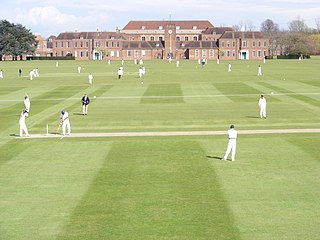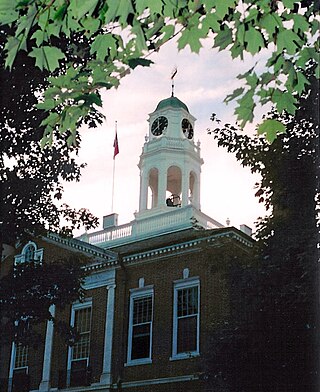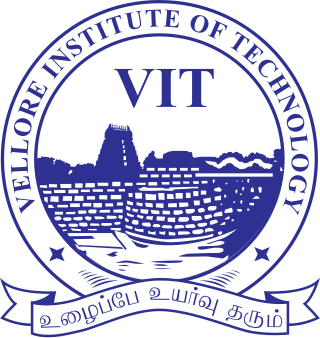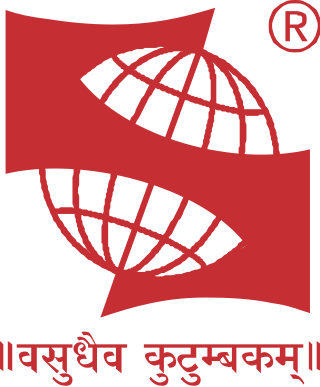 | |
| Established | 2011 |
|---|---|
| Chairman | S. K. Punj |
| Location | , , 32°04′52″N76°35′35″E / 32.081°N 76.593°E |
| Website | www |
Sri Sai University (SSU) is a private university located in Palampur, Kangra district, Himachal Pradesh. It was established in 2011. [1]
 | |
| Established | 2011 |
|---|---|
| Chairman | S. K. Punj |
| Location | , , 32°04′52″N76°35′35″E / 32.081°N 76.593°E |
| Website | www |
Sri Sai University (SSU) is a private university located in Palampur, Kangra district, Himachal Pradesh. It was established in 2011. [1]

A college is an educational institution or a constituent part of one. A college may be a degree-awarding tertiary educational institution, a part of a collegiate or federal university, an institution offering vocational education, a further education institution, or a secondary school.
Privatization can mean several different things, most commonly referring to moving something from the public sector into the private sector. It is also sometimes used as a synonym for deregulation when a heavily regulated private company or industry becomes less regulated. Government functions and services may also be privatised ; in this case, private entities are tasked with the implementation of government programs or performance of government services that had previously been the purview of state-run agencies. Some examples include revenue collection, law enforcement, water supply, and prison management.
Private property is a legal designation for the ownership of property by non-governmental legal entities. Private property is distinguishable from public property, which is owned by a state entity, and from collective or cooperative property, which is owned by one or more non-governmental entities. John Locke described private property as a Natural Law principle arguing that when a person mixes their labor with nature, the labor enters the object conferring individual ownership.

The Times of India, also known by its abbreviation TOI, is an Indian English-language daily newspaper and digital news media owned and managed by The Times Group. It is the fourth-largest newspaper in India by circulation and largest selling English-language daily in the world. It is the oldest English-language newspaper in India, and the second-oldest Indian newspaper still in circulation, with its first edition published in 1838. It is nicknamed as "The Old Lady of Bori Bunder", and is a "newspaper of record".

Private schools in the United Kingdom are schools that require fees for admission and enrollment. Some have financial endowments, most are governed by a board of governors, and are owned by a mixture of corporations, trusts and private individuals. They are independent of many of the regulations and conditions that apply to state-funded schools. For example, the schools do not have to follow the National Curriculum for England, although many such schools do.
Public law is the part of law that governs relations and affairs between legal persons and a government, between different institutions within a state, between different branches of governments, as well as relationships between persons that are of direct concern to society. Public law comprises constitutional law, administrative law, tax law and criminal law, as well as all procedural law. Laws concerning relationships between individuals belong to private law.
A college-preparatory school is a type of secondary school. The term refers to public, private independent or parochial schools primarily designed to prepare students for higher education.

A state school, public school, or government school is a primary or secondary school that educates all students without charge. They are funded in whole or in part by taxation and operated by the government of the state. State-funded schools are global with each country showcasing distinct structures and curricula. Government-funded education spans from primary to secondary levels, covering ages 4 to 18. Alternatives to this system include homeschooling, private schools, charter schools, and other educational options

A private school is a school not administered or funded by the government, unlike a public school. Private schools, are schools that are not dependent upon national or local government to finance their financial endowment. Unless privately owned they typically have a board of governors and have a system of governance that ensures their independent operation.
Nationalization is the process of transforming privately-owned assets into public assets by bringing them under the public ownership of a national government or state. Nationalization contrasts with privatization and with demutualization. When previously nationalized assets are privatized and subsequently returned to public ownership at a later stage, they are said to have undergone renationalization. Industries often subject to nationalization include telecommunications, electric power, fossil fuels, railways, airlines, iron ore, media, postal services, banks, and water, and in many jurisdictions such entities have no history of private ownership.
In India, a deemed university or deemed-to-be-university is an accreditation granted to higher educational institutions in India by the Ministry of Education. According to the ministry's definition, the accreditation indicates, "an Institution of higher education, other than universities, working at a very high standard in specific area of study" and the accreditation grants "the academic status and privileges of a university."

A financial endowment is a legal structure for managing, and in many cases indefinitely perpetuating, a pool of financial, real estate, or other investments for a specific purpose according to the will of its founders and donors. Endowments are often structured so that the inflation-adjusted principal or "corpus" value is kept intact, while a portion of the fund can be spent each year, utilizing a prudent spending policy.

A public university or public college is a university or college that is owned by the state or receives significant funding from a government. Whether a national university is considered public varies from one country to another, largely depending on the specific education landscape. In contrast a private university is usually owned and operated by a private corporation. Both types are often regulated, but to varying degrees, by the government.

Private universities and private colleges are higher education institutions not operated, owned, or institutionally funded by governments. However, they often receive tax breaks, public student loans, and government grants. Depending on the country, private universities may be subject to government regulations. Private universities may be contrasted with public universities and national universities which are either operated, owned and or institutionally funded by governments. Additionally, many private universities operate as nonprofit organizations.

Vellore Institute of Technology (VIT) is a private deemed university in Vellore, Tamil Nadu, India.
A chancellor is a leader of a college or university, usually either the executive or ceremonial head of the university or of a university campus within a university system.

A company, abbreviated as co., is a legal entity representing an association of legal people, whether natural, juridical or a mixture of both, with a specific objective. Company members share a common purpose and unite to achieve specific, declared goals.

The A-level is a subject-based qualification conferred as part of the General Certificate of Education, as well as a school leaving qualification offered by the educational bodies in the United Kingdom and the educational authorities of British Crown dependencies to students completing secondary or pre-university education. They were introduced in England and Wales in 1951 to replace the Higher School Certificate. The A-level permits students to have potential access to a chosen university they applied to with UCAS points. They could be accepted into it should they meet the requirements of the university.

Symbiosis International (Deemed University), is a multi-campus private, deemed university located in the city of Pune, India. The university is located in various campuses in Pune, Bengaluru, Hyderabad, Nashik, Noida, Nagpur etc.